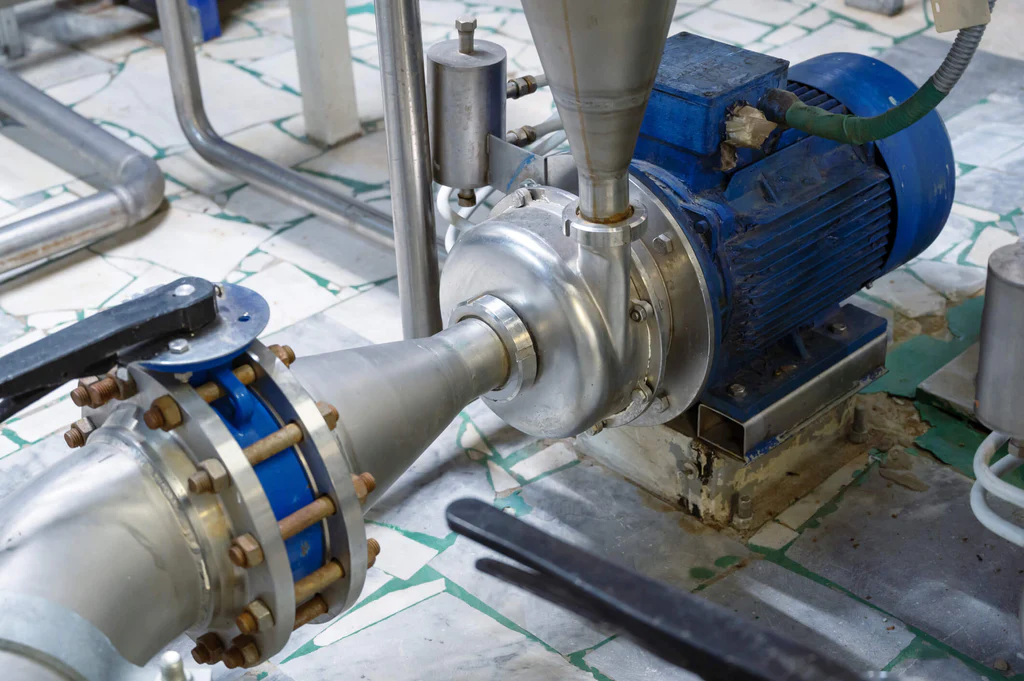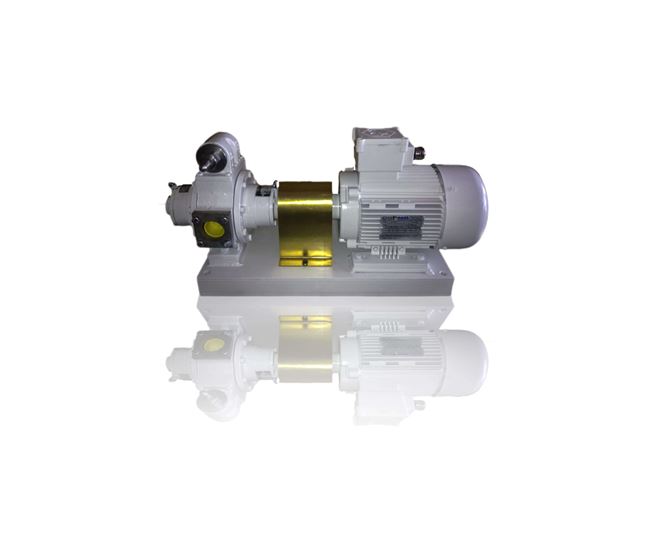Product Description
Product characteristics:
1: Double stage and high speed directly connected structure.
2: Small size,light weight,low noise,easy to start,stable operation.
3: Equipped with specially designed air ballast valve to prevent water mixing with oil pump and prolong pump working time.
4: The pump can be used as a suction pump alone, also can be used as a backing pump for booster pump, diffusion pump and molecular pump,also can be used as maintenance pump or forepump in the system.
5: It is widely used in the electric vacuum device manufacturing industry, refrigeration industry, medical analysis device industry, solar energy industry and scientific research unit.
Pump specifications:
| Model |
Ultimate pressure (Pa) |
Pumping speed (L/S) |
Inlet Diam (mm) |
Motor Power(KW) |
Net Weight (Kg) |
| 2XZ-0.25 | 6×10-1 | 0.25 | Ø10 | 0.12 | 15 |
| 2XZ-0.5 | 6×10-2 | 0.5 | Ø16 | 0.18 | 18 |
| 2XZ-1 | 6×10-2 | 1 | Ø16 | 0.25 | 19 |
| 2XZ-2 | 6×10-2 | 2 | Ø25 | 0.37 | 27 |
| 2XZ-4 | 6×10-2 | 4 | Ø25 | 0.55 | 30 |
Applications:
It is widely used in the electric vacuum device manufacturing industry, refrigeration industry, medical analysis device industry, solar energy industry, electric light source industry, vacuum CHINAMFG industry and scientific research unit.
Product display:
Company ovweview:
Established in 1986, our company has been focusing on the development and manufacture of vacuum pumps and water pumps.We are a comprehensive pump company integrating production, sales and after-sales maintenance services.
The main products include liquid ring vacuum pumps;rotary vane vacuum pumps;roots vacuum pump;centrifugal water pump and customized vacuum pump system,which are widely used in all kinds of plastic extrusion line;medical and pharmaceutical industry(autoclave sterilizer/capsule filling and sealing machine);food-related industry(beverage machine/milking machine/sugar plant);chemical industry;power plant;coal mine etc.
FAQ:
1.Q:Are you a manufacturer or trading company?
A: We are a professional vacuum pump manufacturer with over 32 year experience. We have 2 factories now which cover more than 33333 square meters,we have rich experience in CHINAMFG liquid industry , Welcome to visit our factory at your time.
2.Q:Do you have minimum order quantity request?
A: for spare parts we have no MOQ,but for whole set equipment of course 1 set is the minimum.
3.Q:Do you have certificates?
A: Yes, we have CE, ISO,SGS.etc. certificates.
5.Q:How to pay?
A:T/T and Alibaba Payment is acceptable.
6.Q:How to pack the products?
A: We use standard export package. If you have special package requirements, we will pack as you required, but the fees will be paid by customers.
7.Q: What about your delivery time?
A: It depends on your pump quantity. Generally 15 days after we receive the prepayment. We will confirm you again when we start to produce.
8.Q:How to install after the equipment arriving destination?
A: We will sent the operating instruction with goods to you.Please strictly follow the instructions for installation
9.Q: How long does your product quality warranty last?
A: 12 months for all our products against any non-artificial quality problem since the product leave our factory.
10.Q: What will you do with quality complaint?
A: We have a complete set of microcomputer controlled testing system(All products are subject to tested before delivery. No product that failed performance test leaves our factory.
/* January 22, 2571 19:08:37 */!function(){function s(e,r){var a,o={};try{e&&e.split(“,”).forEach(function(e,t){e&&(a=e.match(/(.*?):(.*)$/))&&1
| Acting Form: | Double-Acting |
|---|---|
| Type: | Vane Pump |
| Displacement: | Variable Pump |
| Performance: | Health |
| Certification: | CE, ISO |
| Power: | 0.37 Kw |
| Customization: |
Available
|
|
|---|

Can Rotary Vane Pumps Handle Corrosive Gases or Vapors?
Rotary vane pumps are generally not suitable for handling corrosive gases or vapors due to their construction and materials. Here’s a detailed explanation:
– Construction: Rotary vane pumps consist of a rotor with vanes that slide in and out of slots within the rotor. The pumping chamber is sealed by these vanes, creating the necessary vacuum or pressure. The internal components of rotary vane pumps are typically made of materials such as cast iron, steel, or aluminum. While these materials are suitable for many applications, they may not withstand the corrosive effects of certain gases or vapors.
– Corrosion Concerns: Corrosive gases or vapors can react with the internal components of the pump, leading to material degradation, erosion, or chemical reactions. This can result in the formation of deposits, pitting, or damage to the pump’s surfaces. Corrosion can compromise the pump’s performance, efficiency, and longevity. In some cases, it can also introduce contaminants into the pumped medium, affecting the quality of the process or downstream equipment.
– Material Compatibility: The compatibility of the pump’s internal materials with the corrosive gases or vapors is a critical consideration. Many corrosive gases or vapors require specialized materials such as stainless steel, Hastelloy, or other corrosion-resistant alloys to withstand their effects. Rotary vane pumps typically do not have internal components made from these materials, making them unsuitable for handling corrosive substances.
– Alternative Solutions: If corrosive gases or vapors need to be handled, alternative pump technologies specifically designed for such applications may be more appropriate. For example, chemical-resistant pumps made from materials compatible with the corrosive substances, such as diaphragm pumps, magnetic drive pumps, or certain types of centrifugal pumps, are commonly used. These pumps incorporate corrosion-resistant materials and specialized sealing mechanisms to ensure safe and reliable operation.
– Protective Measures: In some cases, it may be possible to use rotary vane pumps for applications involving mildly corrosive gases or vapors by implementing protective measures. This can include installing chemical traps or filters in the pump system to remove or neutralize corrosive substances before they reach the pump. However, the effectiveness and feasibility of such measures depend on the specific application and the level of corrosion resistance required.
It’s important to consult with pump manufacturers or industry experts to determine the most suitable pump technology for handling corrosive gases or vapors. They can provide guidance on selecting the appropriate pump materials and design to ensure safe and efficient operation in corrosive environments.
Overall, while rotary vane pumps offer many advantages in various applications, they are generally not recommended for handling corrosive gases or vapors due to the potential for material damage and performance degradation. Using pumps specifically designed for corrosive applications is crucial to maintain operational integrity and prevent costly failures.

Can Rotary Vane Pumps Create a Deep Vacuum?
Rotary vane pumps are capable of creating a vacuum, but the depth of the vacuum they can achieve is limited compared to other types of vacuum pumps. Here’s a detailed explanation:
Rotary vane pumps utilize a positive displacement mechanism to create a vacuum. As the rotor rotates, the vanes slide in and out of the rotor slots, creating expanding and contracting chambers. This action allows the pump to draw in gas or fluid from the inlet port and then expel it through the outlet port.
While rotary vane pumps can achieve relatively high vacuum levels, they are not typically designed to create extremely deep vacuums. The ultimate vacuum level that a rotary vane pump can achieve depends on several factors, including the specific pump design, the quality of the sealing surfaces, the lubrication system, and the operating conditions.
In general, rotary vane pumps can achieve vacuum levels in the range of a few millibars (thousandths of atmospheric pressure) or slightly lower. However, they may struggle to reach the ultra-high vacuum levels required in certain applications, such as semiconductor manufacturing or scientific research.
For applications that demand deeper vacuums, other types of pumps, such as turbomolecular pumps or cryogenic pumps, are typically employed. These pumps are specifically designed to operate in the high-vacuum or ultra-high-vacuum range and can achieve significantly lower pressures than rotary vane pumps.
It’s important to consider the specific requirements of your application when selecting a vacuum pump. If you need to create a deep vacuum, you may need to explore alternative pump technologies that are better suited to achieve the desired vacuum level.
In summary, while rotary vane pumps can create a vacuum, their capability to achieve deep vacuums is limited compared to specialized high-vacuum pumps. The ultimate vacuum level achievable with a rotary vane pump depends on various factors, and if ultra-high vacuum levels are required, alternative pump technologies should be considered.


editor by Dream 2024-05-08
Leave a Reply